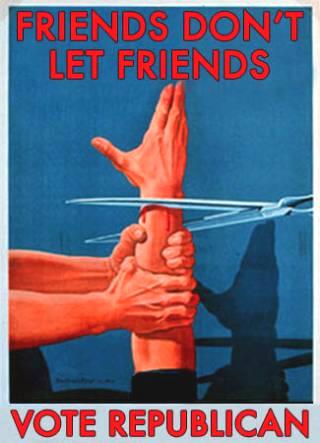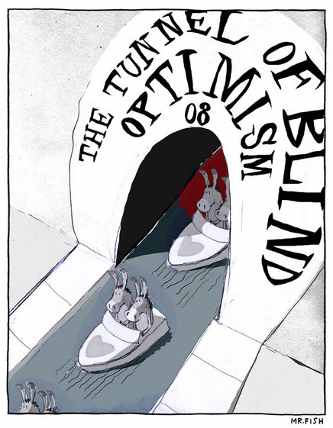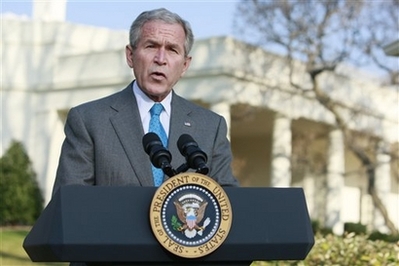
Like the vast majority of our 300 million or so fellow citizens--but unlike most of the elite political reporters covering the presidential campaign--your authors have never had the pleasure of meeting Arizona Senator and Republican presidential nominee John McCain. We've never sat with him in a semicircle on the red velvet couches of the Straight Talk Express downing Dunkin' Donuts and participating in endless bull sessions that long outlast our store of questions. We've never talked strategy openly with McCain and his advisers over drinks and dinner, or been fed information to use against his opponents. Perhaps even more regrettably, we have not enjoyed the pleasure of joining our media colleagues for a sunny afternoon, chez McCain, "swinging lazily back and forth on a tire swing strung up under a massive sycamore tree in a quiet Arizona canyon, the sound of a gushing stream nearby," as the candidate, according to Newsweek, "carefully monitor[ed] giant slabs of pork ribs on a smoking grill."
We've enjoyed him on The Daily Show, admired his courage in Vietnam and imagine we understand his appeal. Perhaps if we had all spent more time hanging, we would appreciate the senator's company, his hospitality and his eagerness to speak his mind in our presence as so much of the MSM has. It is even possible that we would call him John when speaking with him. And let's be honest, we cannot be certain that, were he still running against George W. Bush, we would not fall into the habit of referring to the McCain campaign as "we"--as in, "I hope we kill Bush"--which apparently happened with some frequency during McCain's unsuccessful 2000 run.
But even though we might be taken with McCain personally, we would like to think that we would resist the urge to offer the sort of spontaneous testimonials to his character that have gushed from the pens of so many MSM journalists.
- more -






















 An offshore oil rig conducts well testing by flaring excess gas while discharging crude oil to a barge.
An offshore oil rig conducts well testing by flaring excess gas while discharging crude oil to a barge.  by
by  "Our insatiable demand for drugs" drives the drug trade, Webb pointed out. "We're spending enormous amounts of money to interdict drug shipments, but supplies remain consistent. Some 86% of high schoolers report easy access to marijuana. Cocaine prices have fallen by about 80% since the 1980s," the freshman senator continued. "Efforts to curb illegal drug use have relied heavily on enforcement. The number of people in custody on drug charges has increased 13-fold in the past 25 years, yet the flow of drugs remains undiminished. Drug convictions and collateral punishments are devastating our minority communities," Webb said.
"Our insatiable demand for drugs" drives the drug trade, Webb pointed out. "We're spending enormous amounts of money to interdict drug shipments, but supplies remain consistent. Some 86% of high schoolers report easy access to marijuana. Cocaine prices have fallen by about 80% since the 1980s," the freshman senator continued. "Efforts to curb illegal drug use have relied heavily on enforcement. The number of people in custody on drug charges has increased 13-fold in the past 25 years, yet the flow of drugs remains undiminished. Drug convictions and collateral punishments are devastating our minority communities," Webb said. 
 by Marty Kaplan
by Marty Kaplan
 By
By 
 Torturegate: Truth, But No Consequences
Torturegate: Truth, But No Consequences 
 by Jeffrey Feldman
by Jeffrey Feldman





